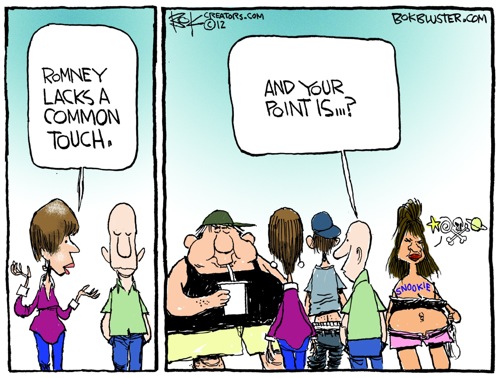Yuval Levin has a fantastic essay on the difference in vision between President Obama and everyone who's not a progressive.
The president simply equates doing things together with doing things through government. He sees the citizen and the state, and nothing in between — and thus sees every political question as a choice between radical individualism and a federal program.
But most of life is lived somewhere between those two extremes, and American life in particular has given rise to unprecedented human flourishing because we have allowed the institutions that occupy the middle ground — the family, civil society, and the private economy — to thrive in relative freedom.
... Again and again, the administration has sought to hollow out the space between the individual and the state. Its approach to the private economy has involved pursuing consolidation in key industries — privileging a few major players that are to be treated essentially as public utilities, while locking out competition from smaller or newer firms. This both ensures the cooperation of the large players and makes the economy more manageable and orderly. And it leaves no one pursuing ends that are not the government’s ends. This has been the essence of the administration’s policies toward automakers, health insurers, banks, hospitals, and many others.
Yuval Levin ties this into the "contraception mandate" issues by President Obama's Department of Health and Human Services.
It is important to recall just what the administration did in that instance. The HHS rule did not assert that people should have the freedom to use contraceptive or abortive drugs — which of course they do have in our country. It did not even say that the government facilitate people’s access to these drugs — which it does today and has done for decades. Rather, the rule required that the Catholic Church and other religious entities should facilitate people’s access to contraceptive and abortive drugs. It aimed to turn the institutions of civil society into active agents of the government’s ends, even in violation of their fundamental religious convictions.
The rule implicitly asserted that our nation will not tolerate an institution that is unwilling to actively ratify the views of those in power — that we will not let it be and find other ways to put those views into effect (even though many other ways exist), but will compel it to participate in the enactment of the ends chosen by our elected officials. This is an extraordinarily radical assertion of government power, and a failure of even basic toleration. It is, again, an attempt to turn private mediating institutions into public utilities contracted to execute government ends.
Are we all yoked together, through government, forced to go the same way, do the same things, and approve of the same things? Or should the government be shrunk down, to allow space for people to voluntarily join together and work together, as they see fit?
∞
